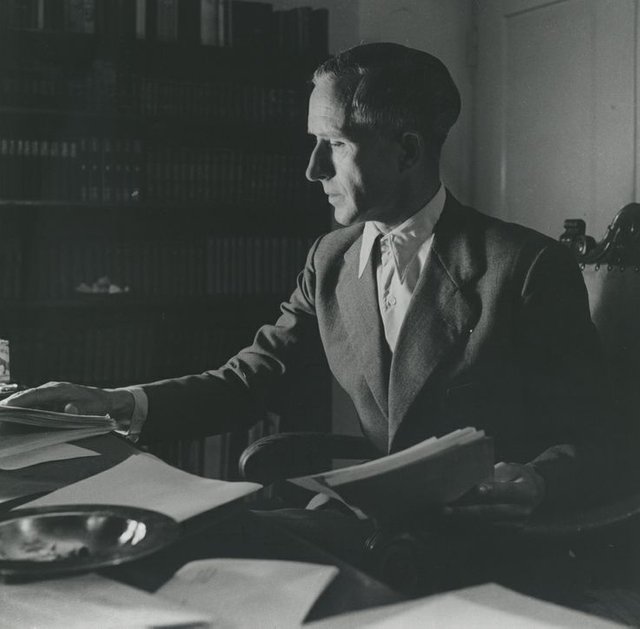Is nostalgia resistence to official memory? Part 1.

When Ernst Junger (pictured above) wrote his account of the hellish reality of the first World War he couldn't have foreseen the cult status his work will achieve for National Socialist youth in the Weimar republic. His In Stahlgewittern is a book that reveals the complexities of the topic. It could be characterised as mildly nostalgic in character, yet it is also a very honest exposition of the author's feelings, negative ones included. On one hand it is a personal account that takes into consideration the larger scale of things only as backdrop to the action, on the other it became classic literature for people who could not have experienced the War and so came to form nothing short of an official memory for the Nazi regime. Yet how different was really Junger's vision of war from that of those of his readers, who had not experienced it first hand?
This essay will examine the relation of nostalgia to official memory and vice versa. I will do this firstly by providing definitions and highlighting the problems of methodology that will complicate the inquiry and nuance the findings and secondly I will draw on examples of contemporary cinematography from the United Kingdom and Poland. This comparison will aim at scrutinising the dynamic process of identity formation and so laying bare the interplay between nostalgia and official memory. I hope to demonstrate that the relationship of the two is far more complex than simple influence of one on the other, but rather that the two form a nebulous context in which remembrance takes place.
While nostalgia could be defined as an aspect of a subjective and idealised perspective on a time period, this would confine the material for the study of nostalgia to surveys at best and anecdotal evidence at worst, since the moment personal nostalgia is channelled into a work of culture or a political statement, it comes into dialectic with other opinions, memories and emotions and so contributes to a dynamic group interpretation. This essay does not attempt to dissect personal, and therefore most valid nostalgia, but rather to select and vivisect representative cases of contemporary, society-wide group-nostalgia for given pasts. This I will do by scrutinising elements of popular culture that rise from, address or generate a nostalgia for the epoch and society that they depict. While the works of classic writers such as Evelyn Waugh, E. M. Forster, I. B. Singer and Bruno Schulz or contemporary authors such as Andrzej Stasiuk and Zadie Smith had engaged critically yet fondly with realities that have passed away, it is not literature, but film that is the most useful medium for the analysis of popular emotion as cinematography is both addressed to the masses and its reception is more easily quantified.
The definition of nostalgia that I will be working with is that of a collective impression of a past that for the audience is a chapter of history unquestionably concluded, yet one that remains evocative and possesses some characteristics that the collective (in my case, the audience) consider desirable. For instance, the Sheriff remains a powerful image in American culture, encoded deep into collective understanding by western cinema, and although few people would realistically choose to live in the Wild West, many would muse about it and certainly most would praise the values represented by the good Sheriff stock character. While the experience of the Wild West is wiped out of living memory, the above cannot be described otherwise than nostalgia. When understanding that nostalgia is not necessarily based on true experience, but on perceived experience, the division between nostalgia for the experienced and inexperienced becomes blurred, especially since time periods can be understood as experienced by nations and other groups and so constituting part of the collective memory and understanding of history that makes a nation. I will now proceed analyse of a few films that best lay bare the relationship of official memory to nostalgia.
[thanks for reading, more soon]
Interesting we are both posting about nostalgia. I also posted a short video clip of Ernst Junger about a month ago.
https://dlive.io/video/kirkins/453edea0-425d-11e8-836a-b9befc1a6029
Good stuff! His German is very sharp and a pleasure to listen to. This is part of an essay I had to write and will be now reworking to make it easier to read as blog entries.